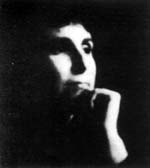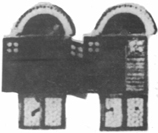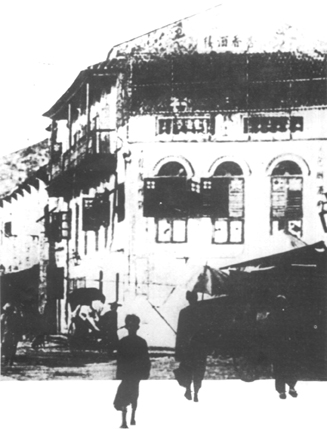
A speedy journey, that must have been how the 'Book of the Dead' wanted it. And yet there have never been speedy journeys to Macau. The seas were violent, the winds harsh, the harbours uninviting. The Portuguese stepped ashore with their swords at their waists, hardly a good way to start doing business. And yet they did business. Adventurers and missionaries were thrown together on board schooners to argue as they would, with a certain code of nobility moderating their excesses, about matters of the soul, about pearls and porcelain. There were always "citizens of merit" on Portuguese voyages, which meant that their endeavours were more than rum-soaked, blood-bathed rampages.
By 1557, Prince Ko Tsing was beginning to feel the strain of pirate attacks along the Pearl River and he asked for help from the Portuguese. They succeeded in ridding the region of the corsaires and in his gratitude, Ko Tsing conceded a lease on Macau, a trading post with a precarious administrative licence. And so, Macau grew out of a gentlemen's agreement.
Twenty years later, Macau could be condensed into a single street with wooden railings which led into the four quarters used for living and trading. This original layout can still be detected in a road which runs through the centre of the city. No longer is there any hint of the dwellings surrounded by groves of trees which used to stand there. Now, there are only crowds of tall buildings. Space is precious, it is rented by the hour. Where by morning there is a stall selling incense, at night there may be a restaurant where all the family labours chopping heads off ducks and slicing meat and vegetables with that dexterity the Chinese have for the art of tiny gestures. Off this central street, there are alleyways with markets which today show little sign of past exotica. European clothes are the norm, although they are decorated with sequins and beads in the oriental style. Modest items for everyday use are sold. There are no more fishermen holding in the palms of their hands champagne-coloured pearls worthy of setting in the Pope's tiara. Nor are there the silk-vendors or ginger and cinnamon tasters, fan-carvers or laquer-ware specialists of yesteryear.
Nowadays, everything is false, an imitation. The times when mandarins kept pieces of raw silk in chests as inheritance to bequeath to their daughters-in-law and concubines have gone for ever. The times for poetry have also disappeared. An entire palace-centred culture, cocooned in grand courtyards, was protected from the influence of ignorant foreigners. Only fragments are left, not enough to imagine an elegant Canton created for the Chinese and Portuguese urban inhabitants, who did business like they gambled, in a fight against death.
Then Summer saw the arrival of the Dutch, the English and the French. Macau had to repel the Dutch on several occasions and her ports remained open for all people to sail into China. The government in Peking has always approved of this diplomatic arrangement, this sentimental resistance. Why? Like the Chinese, the Portuguese have a particular tendency to waste time, to enjoy it without that avidity the English have. Time, for the Chinese, is not money but rather a wonderful spiritual activity, an item to barter against eternity, not for survival. The Portuguese are also artists in this respect. Time is merely an indiscretion committed by God. The concept of time is given to us so that we may place ourselves in relation to any action repeated over the millenia with the same degree of wisdom and inexplicable importance. If you were to ask a Chinese how long it takes to etch an almost invisible scene on a stone, he would say: "Two or three years".
"And so, in the course of your life, you will only decorate twenty stones", you may say. And he would reply:
"In this life".
Time is the guarantee of his reality, it is not a measurement of profit. Not everybody took the trouble to understand the character of the Chinese, but the Portuguese had an impression that there was a link which could be observed between men, an element of waiting which proved to be the greatest uniter of people. Nothing is a consummate fact. That is precisely what luck involves. What would China be like if she were overrun by strange peoples, understood by many races, influenced by them, leaving behind her customs, substituting the weight of her ancient traditions for other criteria and senseless discourse? She would perhaps be more extravagant, more inclined towards a new creativity, renewed through curiosity and even failure. A culture must be able to decay in order for it to be a culture at all. I do not believe in the concept of a universal culture. Rather, I believe in the effect of cultures unleashing hope through changes in their own traditions.

The spirit of Hong Kong is completely different. The Shangri-La is a hotel with a sheen of forties bourgeois colonialism and an army of waiters. Its British luxury can be seen in the highly domesticated routines which reflect a kind of cerimonial well-being, the teapot sitting in its cosy. Everybody is having a good time. Christmas slides off the tops of sky-scrapers like a remote-control toy. There is a festive imagination in the air which is otherwise quite polluted. People eat smoked salmon and pudding and in the restaurants and Chinese self-service bars the British and the French don't go in unless by mistake, from tourist's bravado or through lack of finesse.
Macau, with its yellow bay (the sign that we are in the heart of China where the furrows in the earth seem to have been gouged open with a chisel, sculpted rather than toiled) is like one of those dirty, antiquated offices in a Balzac novel where huge sums of money are handled and business is done on an immense scale. Where, in other words, money grows and multiplies at the gambling table, in the customs-houses and in the market that is replenished every day from the belly of the jet-foils, which cut through the waters on their way to Macau every half hour.
And yet Macau is also a land of poetry, where the roots of the trees hold in the banks of the sea with the intimate air of sleeping pirates. Old men walk in the Camões Park with their caged birds. They gamble, the birds sing; they take bets, and the birds sing. So the Chinese say that a little bird has Heaven in its heart, while a woman has only the Moon. But not even the twenty decorated stones can give a real idea of the women in Macau. The oriental woman is a world apart. A tiny Chinese woman approaches the slot-machines in the casino with childish glee and yet at the same time able to win against time. Her tiny body reflects a dynastic strength and yet she laughs as if everything were wrought from sentiment. She laughs openly, a mocking laugh which echoes her full enjoyment of a freedom given to her curiosity, for so long unsatisfied.

* One of the greatest living Portuguese writers, Agustina Bessa Luís has published dozens of novels since 1948 and has been awarded a number of prestigious literary prizes. She also writes plays, travel books and biographies and is one of the most productive writers in Portugal.
start p. 86
end p.